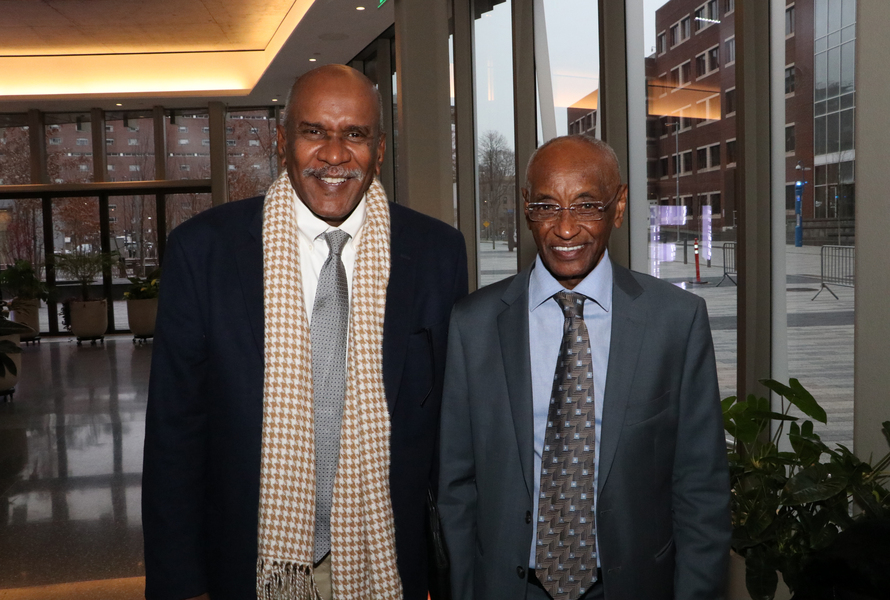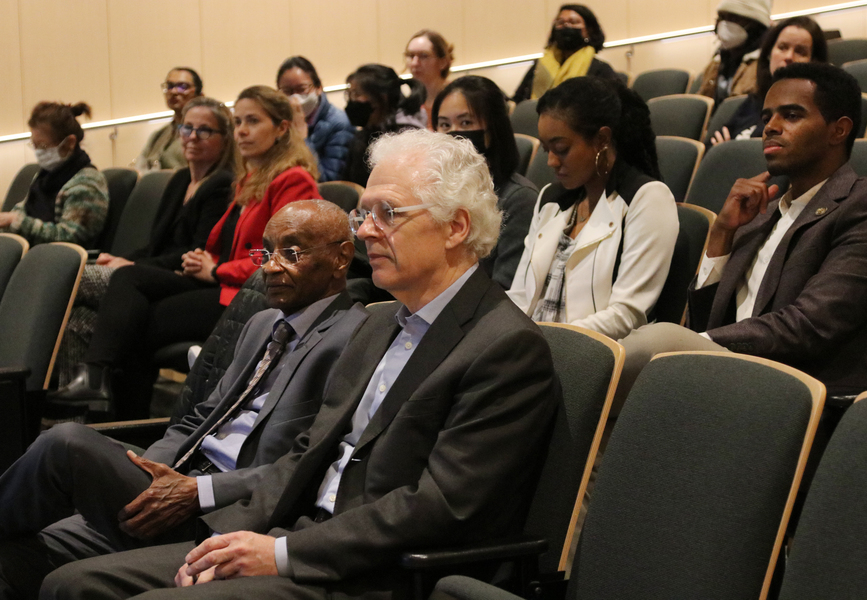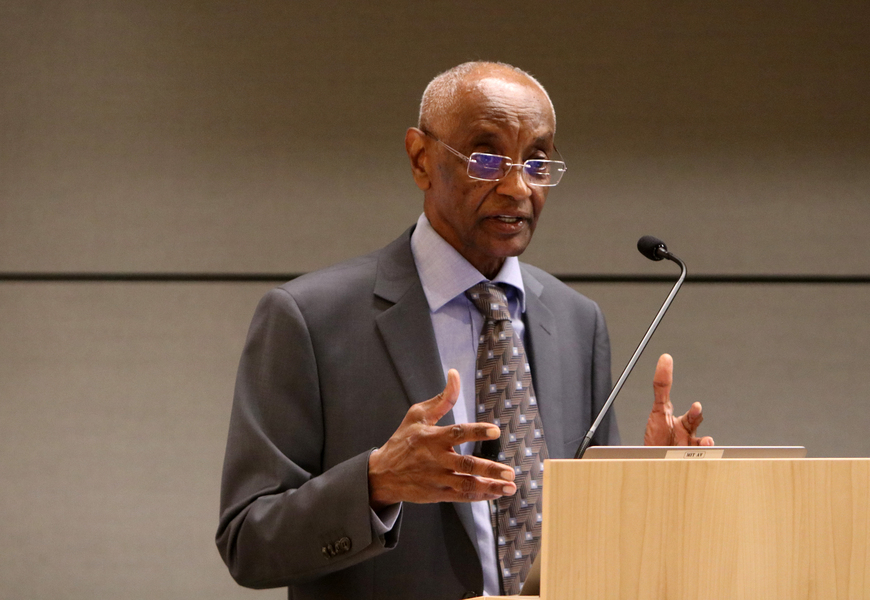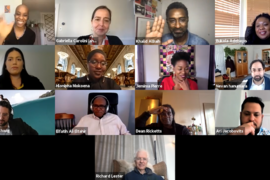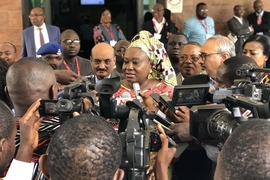On March 17, the MIT community welcomed the renowned physicist, scholar, and academic leader Professor Mohamed H.A. Hassan, as the first honoree of the MIT Africa Distinguished Visitors Program. During his visit, Hassan delivered a keynote address on the role of innovation in achieving sustainable development on the African continent and met with student leaders and MIT engineering, science, urban planning, and anthropology faculty.
In association with the distinguished visitor’s program, the Office of the Associate Provost announced the creation of the MIT-Africa Seed Fund, supporting innovative projects that will lay the foundations for new research and education initiatives between MIT and African collaborators.
“This is a milestone moment for MIT in terms of increasing its engagement with Africa, and this new program provides a focus for further developing the MIT-wide community of researchers whose work addresses challenges that are relevant to African societies,” said Associate Provost Richard Lester, who oversees the international activities of the Institute. “Professor Hassan is a distinguished African scientific leader, and we are honored to have him as our first visiting scholar.”
Hassan is the president of the World Academy of Sciences and of the Sudanese National Academy of Sciences. He previously served as dean of the School of Mathematical Sciences at the University of Khartoum in Sudan. His many scientific honors include the Commandor and Grand Cross of the Brazilian Order of the National Scientific Merit; Officer of the Order of Merit of Italy; and Abdus Salam Medal for Science and Technology.
In his lecture, Hassan focused on the obstacles facing African nations and institutions as they work to fulfill the United Nations’ Sustainable Development Goals, and he suggested possible directions and opportunities for collaboration between MIT and partners on the African continent.
“Africa must strengthen the quality of scientific research and education in order to train and retain a new generation of talented, problem-solving researchers, and I believe that partnerships with MIT will play a vital role in that process,” said Hassan.
Hassan described Africa’s sustainability challenges and the roles of frontier science, technology, and innovation (STI), science diplomacy, and global partnerships in addressing those challenges, within the specific geographic, political, and cultural contexts of African countries. He cited contemporary STI solutions in Africa, ranging from agricultural biotechnology to artificial intelligence to “mega” science projects like the Square Kilometre Array radio astronomy project, a collaboration between South Africa, Australia, and other countries.
Among the concepts Hassan explored was integrated innovation, which links scientific and technological innovation with innovations in education, government, industry, and society; he cited the work of MIT’s Abdul Latif Jameel Poverty Action Lab as an excellent example. He also called for greater investment by African governments in research and development and higher education. Providing high-quality research facilities and adequate working conditions will be critical for retaining talented African scientists and enabling them to integrate successfully into the global scientific community.
Hassan’s visit stimulated discussion of potential new opportunities for MIT researchers in Africa. “This program will diversify MIT’s intellectual engagements and connect students and faculty to a host of contemporary challenges in African societies, including sustainable development, climate change, renewable energy, and population growth,” noted Elfatih Eltahir, co-chair of the MIT Africa Faculty Steering Committee and H. M. King Bhumibol Professor of Hydrology and Climate, and professor of civil and environmental engineering.
Gabriella Carolini, associate professor of international development and urban planning, director of the City Infrastructure Equity Lab, and co-chair of the MIT Africa Faculty Steering Committee, stressed the importance of working directly with African partners like Hassan who are addressing some of the most urgent global challenges including climate change, urban planning, and infrastructure.
“I can't imagine a more diverse geography of relevance to everything that MIT cares about than the African continent,” said Carolini.
By interacting with honorees like Hassan from across the disciplinary spectrum, Carolini hopes that MIT students and faculty will find new ways to engage their characteristic curiosity and eagerness to learn, as they strive to have a positive impact in the world.
“I want to make sure that there are opportunities for my members to connect with professionals in their fields, but also with people specifically from where they're from,” said MIT senior and president of the MIT African Students Association Sharon Opara-Ndudu, a biological engineering major from Lagos, Nigeria. “I think this program offers value to everyone at MIT and is a great way for African students, or students of African descent, to see where they can go.”
